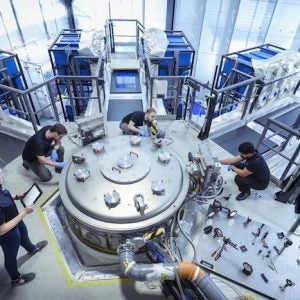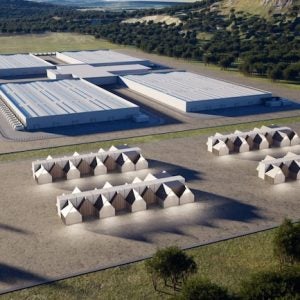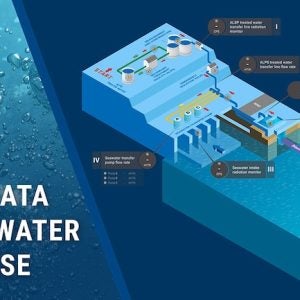US-based NorthStar Medical Radioisotopes announced on 30 August that it has been awarded $37 million in cooperative agreement funds with the US Department of Energy’s National Nuclear Security Administration (DOE/NNSA) as part of an industry outreach initiative to establish reliable domestic molybdenum-99 (Mo-99) production without the use of highly enriched uranium (HEU). NorthStar will use funds from the award to complete its neutron capture technology programme and continue development and expansion of its accelerator production programme. Both projects support non-uranium based, environmentally friendly production of Mo-99.
DOE/NNSA will provide $16.3M in funding for the neutron capture project and $20.7M for the accelerator project. NorthStar will also be required to provide an equal amount of matching funds. The awards will also be used in continuing development of enhancements for the FDA-approved and commercially available RadioGenix® System (technetium Tc-99m generator). The RadioGenix System uses reliable, domestic, non-uranium based Mo-99 to supply physicians and patients with technetium-99m (Tc-99m). Mo-99 is the parent radioisotope of Tc-99m, the most widely used medical imaging radioisotope, which is used to inform healthcare decisions for 40,000 U.S. patients daily.
“NorthStar deeply appreciates these new cooperative agreement awards and this financial and technical support provided by DOE/NNSA,” said Stephen Merrick, President and CEO. “NorthStar is the only commercialised US producer of Mo-99, having provided reliable Mo-99/Tc-99m supply to the nation for nearly three years.” He added: “We are working aggressively to ensure sustainable domestic Mo-99 supply through dual production and processing hubs for additional capacity and scheduling flexibility. Funds from these cooperative agreements will be used for completion of our neutron capture technology programme and Isotope Processing facility, for completing Phase 1 of our accelerator technology programme and first Accelerator Production facility and progressing Phase 2 of the accelerator programme. The funds will also support enhancements to the RadioGenix System to continue optimising its utility with new technologies.”






